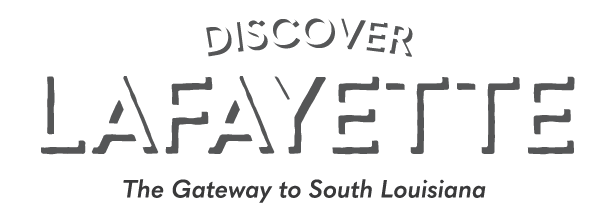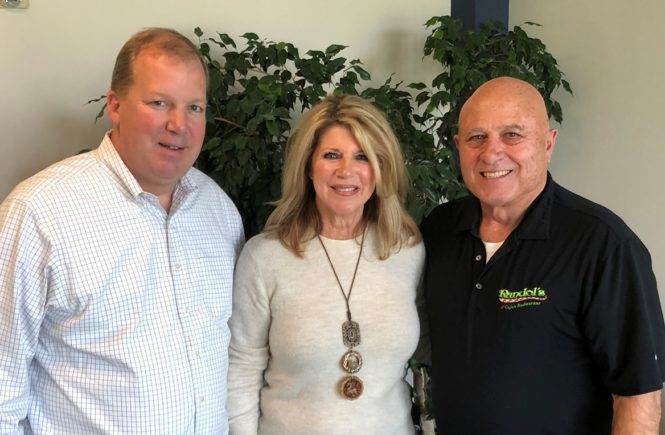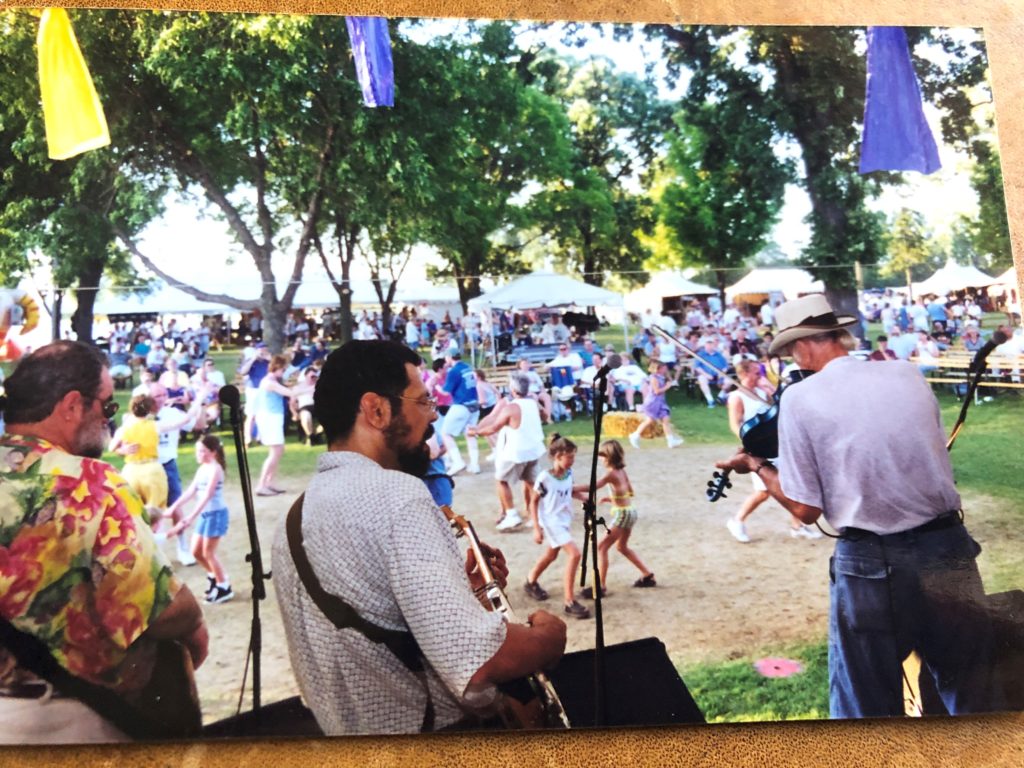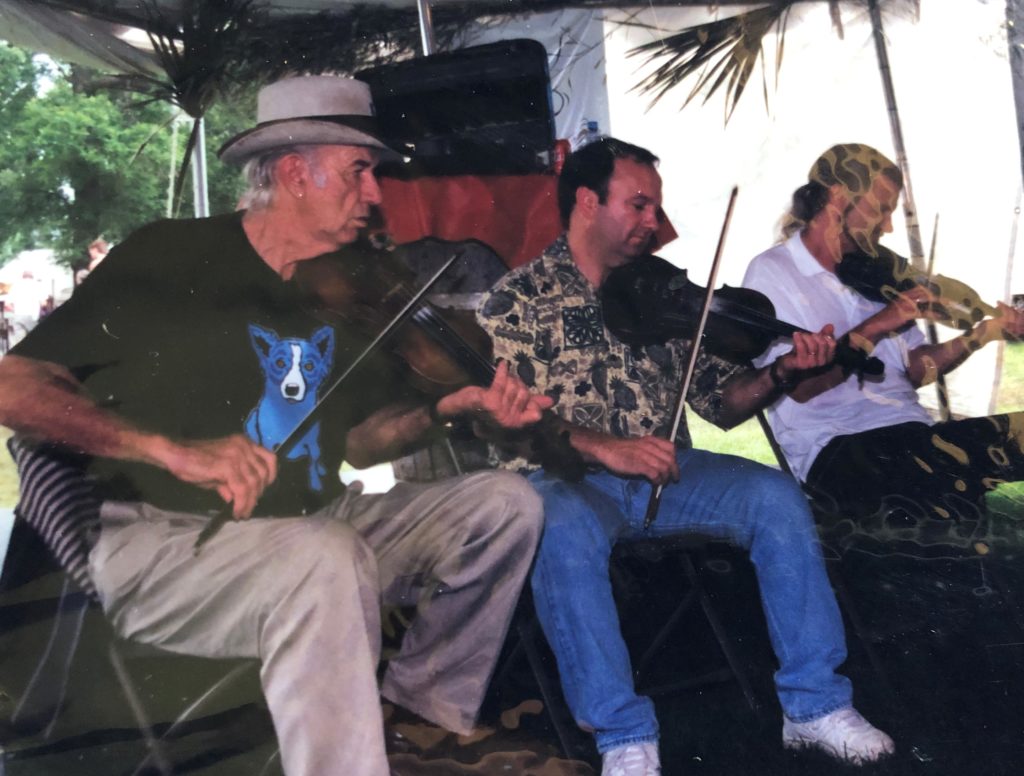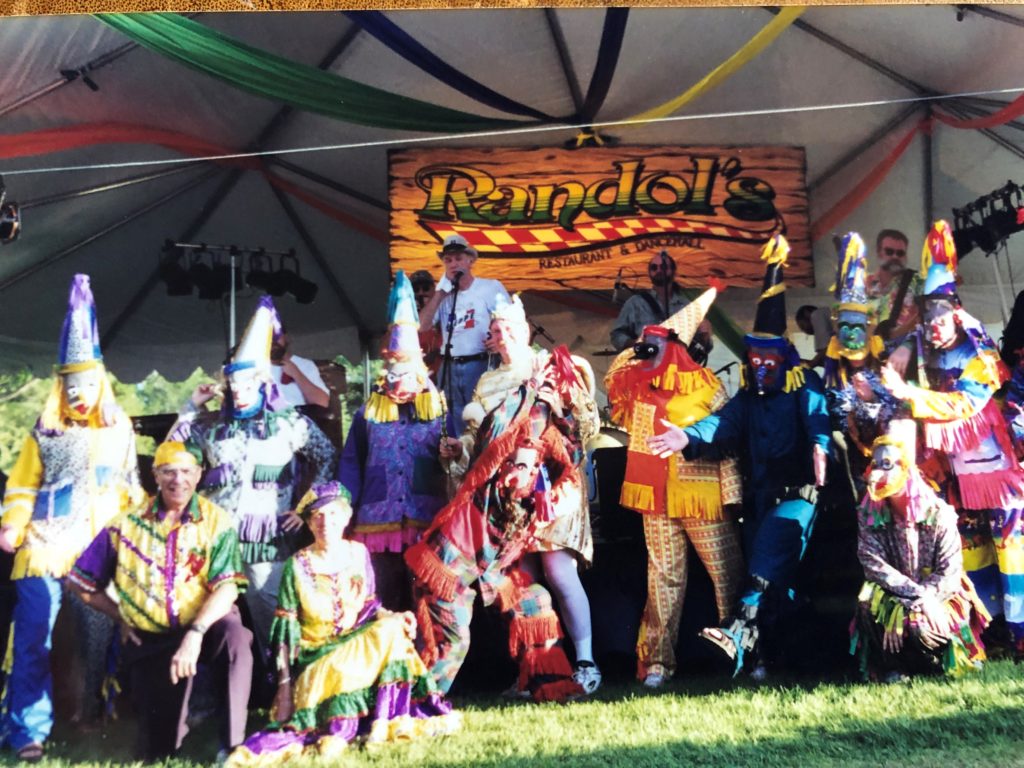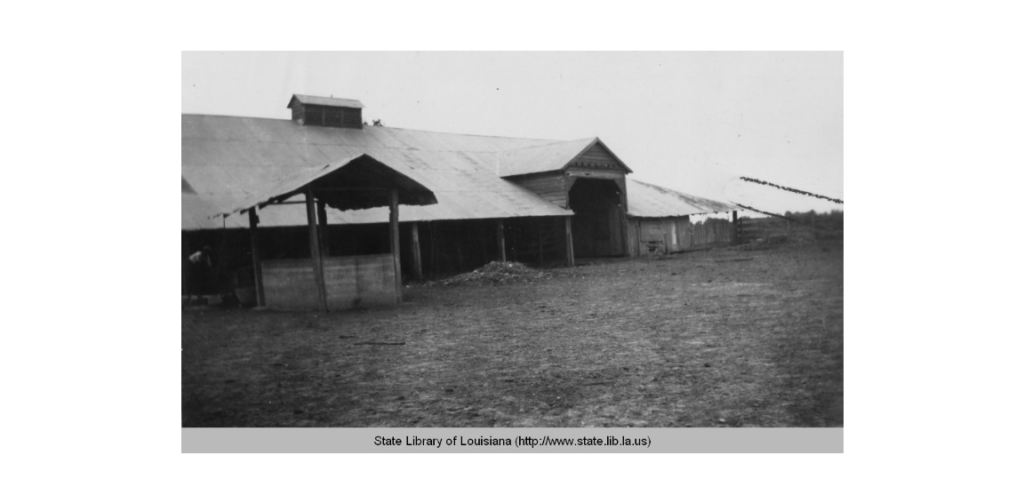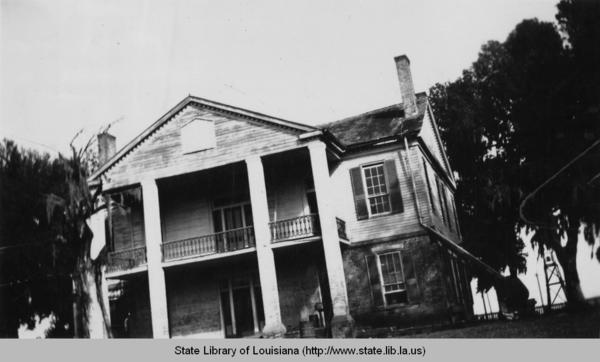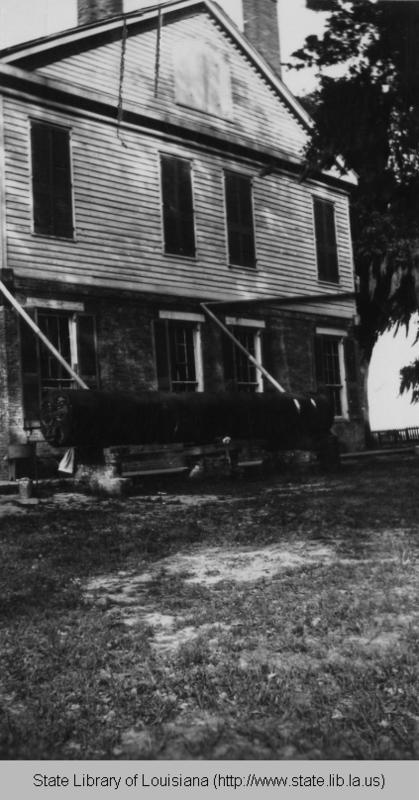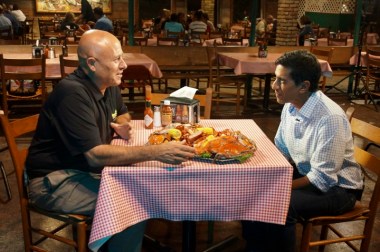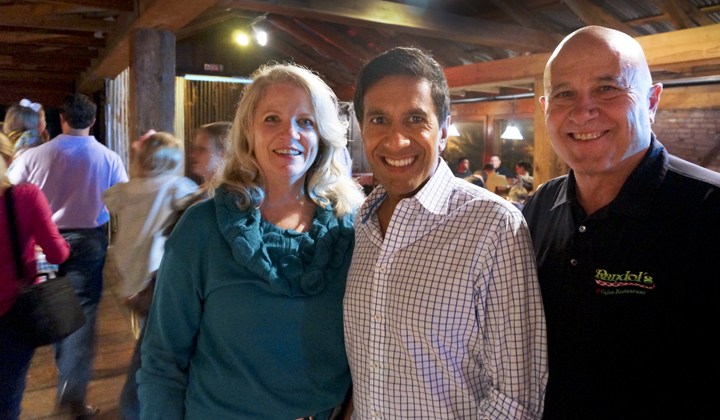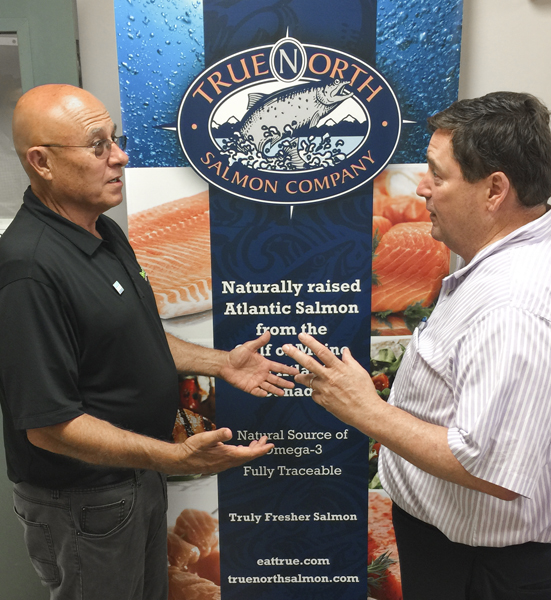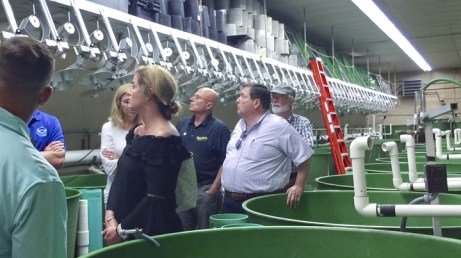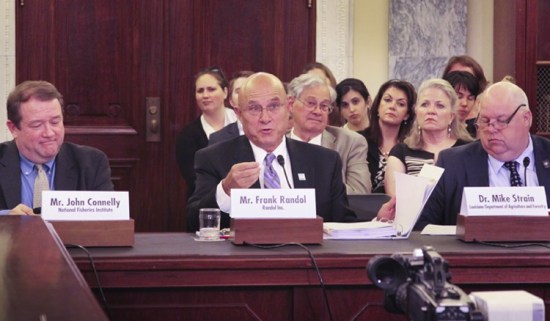Podcast: Play in new window | Download (Duration: 44:57 — 61.7MB)
Frank Beaullieu Randol is passionate about seafood, especially about sustaining our Gulf Seafood industry and keeping our Cajun culture alive for generations to come.
In this Discover Lafayette podcast, you’ll have the pleasure of hearing Frank discuss what it has taken to keep his restaurant, Randol’s, going for almost five decades, how he worked to introduce authentic Cajun music and dancing to states across the U. S. in the 1980s, and how migrant workers are an indispensable component of the seafood processing business as well as many other labor-intensive industries in America.
An iconic figure in Lafayette, Frank Randol is celebrating his 49th year in the restaurant and seafood processing business. Randol’s Cajun Dance Hall is internationally famous for its authentic old-time dance hall feel and is a destination for tourists. Approximately 60% of visitors are from out of town with many being European and French-speaking. The floor has taken a beating over the years with untold numbers of dancers stomping away; Frank notes with pride that they’re now on their fourth dance floor with the first having been constructed from pine and the past three out of oak. “Crowbar parties” were used to replace each of the floors, with dancers using crowbars to remove the planks over three nights while they kept on dancing,” according to Frank. As they say, “Laissez les bons temps rouler” or let the good times roll!
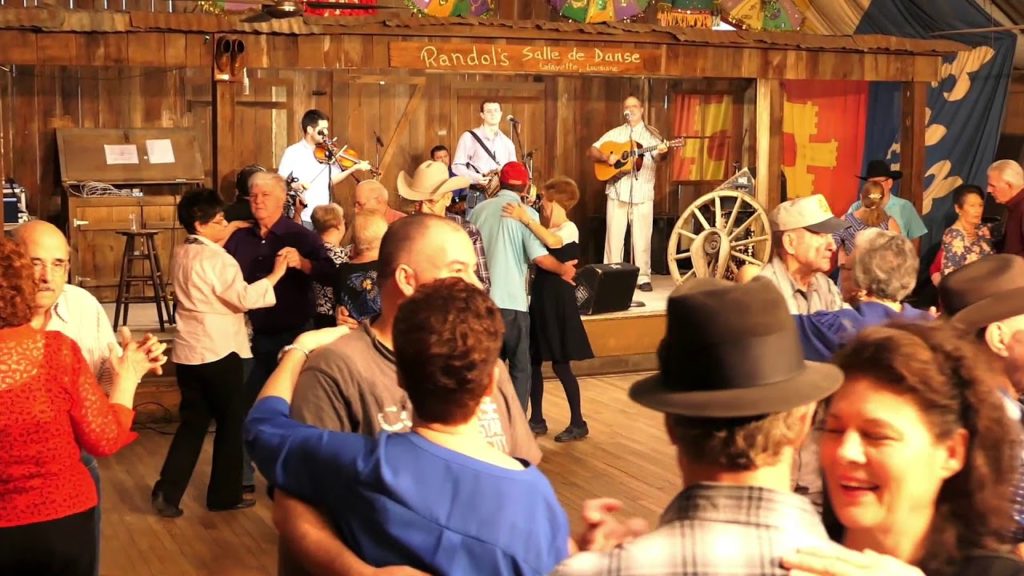
Randol’s has been open at its Kaliste Saloom location for 40 years, and Frank had a facility for 9 years before that in Henderson, LA. Many people may not realize that Frank’s restaurant sits on property formerly owned by his ancestors, the Billeaud family, known as the Long Plantation, one of the area’s largest working plantations which encompassed 600 acres in the Kaliste Saloom and Ambassador Caffery corridor in Lafayette. His restaurant and seafood processing plant take up about 5 acres, and he also has property near Our Lady of Lourdes which was also carved out of the 200 acre tract inherited by Della Marie Billeaud Beaullieu, his grandmother. (Comeaux High School was built on 30 acres donated by the Billeaud heirs and River Ranch also sits on this land.)
When Frank chose the Kaliste Saloom site for his restaurant 40 years ago, people thought he might be a bit crazy as it was on an isolated two-lane road with very little commercial activity. Yet through the years, the wisdom of his decision has become apparent as Lafayette’s growth has headed south and his restaurant is on one of the busiest streets in Lafayette. His reputation among his peers is exceptional, as affirmed by George Graham, below:
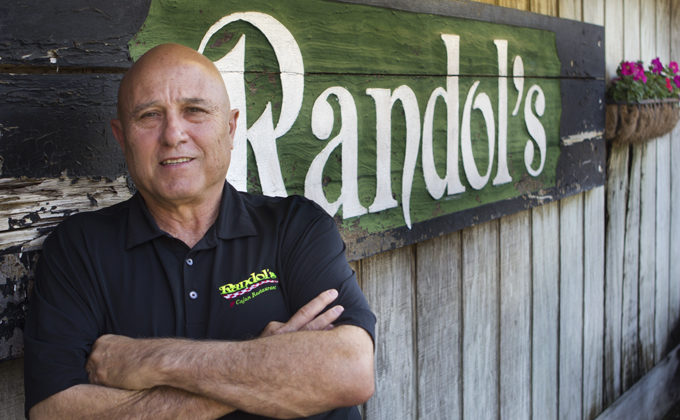
Frank began his career by selling crabs and eventually began delivering Gulf crabs to the Baltimore market. After flying them to the East Coast as a licensed pilot, he quickly realized it was much easier to delegate the task to Delta Airlines out of Baton Rouge, where he would load 5000 pounds per night in what they nicknamed, “the Louisiana Crab Special.”

This photo montage was put together by Frank Randol’s granddaughter that depict him in various stages of his life as a young pilot in his teens, serving in the military, with his parents, and at the U. S. Capitol in Washington, D. C. Frank’s ability to “fly” through his career makes for a fascinating story on this iconic Lafayette businessman.
Through the years, Frank has been a part of growing Louisiana’s burgeoning aquaculture business and partnered with LSU’s engineering department for over a decade as they produced softshell crabs in conditions similar to the saltwater environment found in the Gulf of Mexico. This project was so successful that Frank ended up selling softshell crabs to the Bellagio in Las Vegas after a fluke meeting where he ordered softshell crabs and was told it was impossible to obtain the crabs. Since Frank was reliably producing the seafood delicacy on his property, he announced that he could guarantee delivery and was “slotted’ to be able to sell softshell crabs to the Bellagio. (An interesting backstory is that he was eating with his local friends, George Graham and Odie Terry when all this occurred so he has reliable witnesses to back up this important milestone in his career!)
Over the years, his seafood processing plant has kept his restaurant operations afloat as lean times come and go. As Frank says, “Processing and distribution of seafood have allowed me to stay in business.” There is no cover charge for entering Randol’s dance hall, although years ago Frank did have to cut out allowing patrons to enter with the proverbial brown bag hiding their liquor!
Frank is an active and passionate spokesperson for the seafood industry and serves as secretary of the Gulf Seafood Foundation. He has also served on the Board of the Louisiana Crawfish Processors and on behalf of the Louisiana Seafood Promotion and Marketing Board and the Petroleum Club in Lafayette.
The Gulf waters are quite vulnerable to environmental occurrences, both natural and man-made, that alter the fragile ecosystem that allows shrimp, crab, and other seafood to flourish and grow. Aquaculture is an important tool to ensure that a sufficient quantity and quality of seafood remain available for restaurants and consumers. Frank recounted his trip to Maine with Lt. Gov. Billy Nungesser to learn more about the state’s diverse aquaculture industry which farms over 460 different types of seafood and has a strong industry voice. The Gulf Seafood Foundation grew out of that experience and according to its website, it is a non-profit that “emphasizes the importance of science and education for continued sustainable fisheries for future generations in the Gulf of Mexico.”
Part and parcel of running a successful seafood processing plant is being able to hire employees to get the job done. Processors rely on seasonal guest workers to fill labor-intensive, low-skilled jobs that may otherwise go unfilled due to a lack of local labor. The H2B visa program allows businesses to legally hire migrant labor if certain conditions are met, and Frank Randol has testified before Congress as to the crucial need for this visa program and how restrictions on the number of workers allowed to legally enter the U. S. has crippled the seafood industry as well as other industries dependent on this labor. In a typical year, 66,000 workers are allowed to enter the U. S. and these workers fill job shortages in all fifty states for industries as diverse as the seafood industry, ski resorts, forestry, hospitality, construction, and housekeeping.
At the time of this writing, our region is experiencing an early crawfish season, so it is a good time to visit Randol’s. To view their menu and learn more about Randol’s, please visit https://www.randols.com.
Thank you Frank Randol for a wonderful interview and interesting walk through history. May you have continued success in your many endeavors as Cajun Ambassador, restauranteur and processor, and seafood industry spokesperson!
